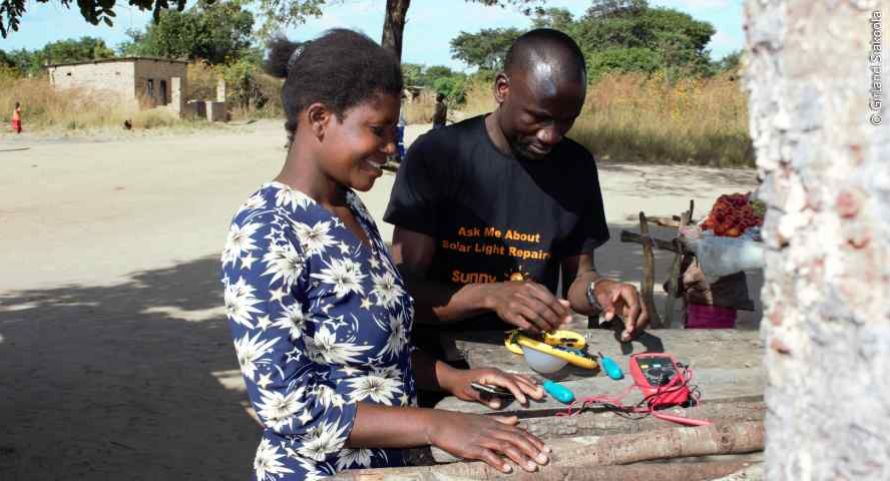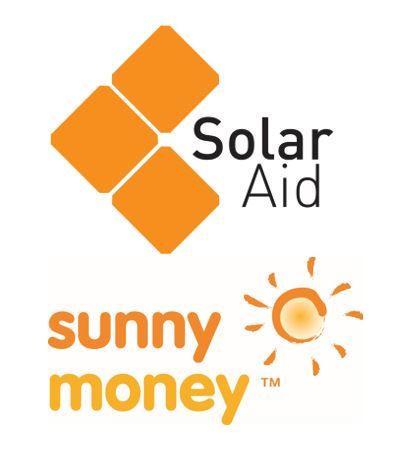Technician network extends life cycles of solar lights

The challenge
In recent years, various companies have distributed tens of thousands of solar lights in Zambia. SolarAid Zambia alone has contributed to over 250,000 of these solar lights. However, many have now exceeded their life cycle or soon will. The danger is that instead of being expensively disposed of as e-waste, they will then end up in illegal landfills. Attempts to recycle these products have so far been sobering. Only ten percent of the components can be reused. The alternative would be to repair the solar lights, replacing only the broken parts. However, there is a lack of trained technicians and sufficient quality spare parts.
The goal
Repairing broken and old solar lights is the best solution from SolarAid Zambia’s point of view. This strategy benefits users, potential technicians, and especially the environment. Therefore, the organization has set itself the goal of building up a network of technicians, training them and supporting them in the procurement of spare parts and the attraction of customers. Through better maintenance and repair, the organization wants to extend the life of solar products and offer low-income people a financial alternative to buying new ones. In the future, this should reduce electronic waste across the country.
Our partner
The non-profit organization SolarAid, also known under its own corporate brand SunnyMoney, is a major player in the dissemination of solar lights on the African continent. Due to its presence in rural regions, located far away from the power grid, SolarAid has large market acceptance in Zambia and is known for its great expertise, especially in the field of product quality and recycling. The organization has been active in Zambia for more than ten years, is a member of the Solar Industry Association of Zambia (SIAZ) and is excellently networked in the national solar industry.
The approach
To ensure that solar lamps can be repaired in the future, SolarAid Zambia is working on various aspects of its project. First, already active self-employed technicians are to be trained in the maintenance and repair of solar lamps and equipped with the necessary tools. Initially, a repair network will be set up in two provinces in the northwest and center of Zambia. To support the technicians, SolarAid Zambia uses a specially developed and cost-free application (app), which provides information on qualitative products and repair instructions, and also identifies spare parts if required. In the course of the project, the app’s database will be expanded, and the program as a whole will be made more user-friendly. At the same time, the organization wants to help ensure that technicians have access to high-quality spare parts by placing collective orders.
To sensitize the population for the possibility of repair, SolarAid Zambia plans local repair days in the two provinces, where trained technicians examine solar lights and, if possible, repairs them. In doing so, the organization can gather valuable information about which brands and parts are most often needed. Based on this information, a repair app and a manual for Picosolar dealers and technicians will be developed. In collaboration with SIAZ, SolarAid Zambia also plans to develop a training webinar and offer repair training to students at a technical school in Lusaka.
With these measures, Solar Aid wants to increase the acceptance of repairs in Zambia and create a supportive environment for technicians. SolarAid Zambia will make the collected knowledge available free of charge to inspire others and promote cooperation between different organizations and companies.
Northwestern and Central Province
Training and Capacity Development
Technicians, local population
12/2021 – 06/2023



